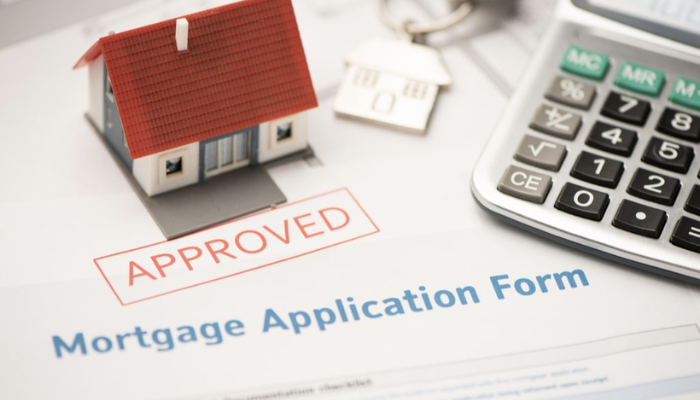How to Understand your Mortgage Documents
How many of us signed a document only to realize, after the fact, that there was an extra charge? Or found an error that’s in the lender’s favor? While reading every page of every legal document we sign is the smart, prudent thing to the length of your amortization do, truth be told very few of us understand all of what’s written in an mortgage insurance contract, mortgage document or even a purchase and sale agreement.
To help you better understand your mortgage documents, here are terms and rates to keep in mind while going over your mortgage documents and how to go about properly reading your mortgage documents.
Terms and Rates to Keep in Mind
When it comes to mortgage documents, they are always filled with important rates and terms you need to look out for. Some of the most significant ones are:

Your Mortgage Interest Rate
Interest rates can make or break a mortgage deal. Without the right rate, you can find yourself funneling tons of extra money into a loan that doesn’t require it. This is why it’s important to always check and confirm that your documents have the right rate. Even a 10 basis point change in the rate can add up over the long haul.
The Length of Your Amortization
This is usually expressed by the number of months. Getting your amortization wrong might lead to a cheaper interest rate, however this comes with the cost of extra payments and interest that you never needed. This is why it is essential to have your mortgage documents present the right amortization period.
Term Length
Similar to your amortization, your term length shows how long your will be making payments to your lender, based on the rates and terms you’ve both agreed upon. The line should also state whether you’ve agreed to a fixed, variable or open mortgage, etc.
The type of mortgage you agree to can have serious implications on the penalties you’re charged should you opt to make an extra payment, or break your mortgage agreement. For simplicity’s sake, a one year mortgage is expressed as 12 months, while a five-year mortgage term is expressed as 60 months and a 25 years amortization is expressed as 300 months.
Monthly Rates and Payments
You should also look out for your monthly mortgage rate (this is a mix of your principal plus interest), the monthly property tax due to your bank (your bank then makes the tax payment on your behalf) and the total amount you will be paying based on the previous two factors. If you are unsure of these numbers, you can easily use a mortgage calculator to double-check them.
The Payment Frequency
This essentially covers how frequently you will be making your mortgage payments. Not only does payment frequency help reduce the overall interest you end up paying, but to make changes after you’ve signed your document can cost you an out-of-pocket fee.
Dates
This covers the day you first get your money and the day the interest clock starts ticking. Pay attention to this. Some lenders will charge you a larger amount for the first payment of your mortgage to cover the interest that has accrued from the Advance Date to the day you make a payment against the outstanding loan.
Some lenders don’t increase the first payment, but allocate a larger portion of this payment to pay off the outstanding interest. Either way, you want to be clear about what’s being charged, and when.
Property Taxes
Under the property taxes clause you will notice that the monthly sum added to your mortgage payment is an “estimate” based on the lender’s assessment of your annual property taxes. If you don’t want to pay your property tax monthly or you want to amend how much you pay you’ll need to negotiate this with your lender.
Read More: Investment Property Mortgage
Penalty Fees
You pay these penalties to your lender whenever you break the negotiated terms of your loan contract. If you have an open mortgage, there should be no penalties for pre-payments or to pay-off the entire loan before the end of the negotiated term.
If you have a variable-rate mortgage, you will be charged a penalty that’s equivalent to three months of mortgage payments, plus administrative fees. If you have a fixed-rate mortgage, you will be charged a fee that’s calculated using the Interest Rate Differential calculation. This calculation is different for every lender, but it can add up, quickly.
Many homebuyers are shocked to learn that they can void their home insurance policy if they undertake home modifications or renovations without first notifying the insurance company and, typically, paying an additional premium.
But did you know you can also void your mortgage loan contract—and prompt a lender to recall and cancel the loan—if you obtain a mortgage and don’t disclose intended construction, alterations or renovations to the home? Read your mortgage contract carefully to see exactly what must be disclosed.
Steps to Take to Ensure You Don’t Miss Anything
Submit the Right Documents
When reading your mortgage contract the lender will typically list the type of documents you are required to submit in order to verify the information you have provided. This will include pay-stubs, Notice of Assessments for your income tax, as well as additional loan or income verification. But don’t be surprised if your lender follows up with requests for additional documentation.
Typically, they cover this off with a broad statement that notifies you that any information they request must be provided.
Make Sure They are Accurate & You Understand your Mortgage Documents Properly
Do you have a plan to pay off your mortgage quickly? Part of that plan may include how often you pay your mortgage—the more frequent the payments, the more you pay and that means paying off the principal faster, which reduces the overall interest you pay for the loan. Every mortgage document will have an area where you can choose the frequency of payments.
Be sure to check off your selection, as making change after the document is signed will cost you.
Administrative fees to open and close a mortgage loan can add up. Ask your mortgage broker for an amortization schedule—to verify how much of each payment is going towards the principal and how much is interest—and you’ll need to pay your lender.








